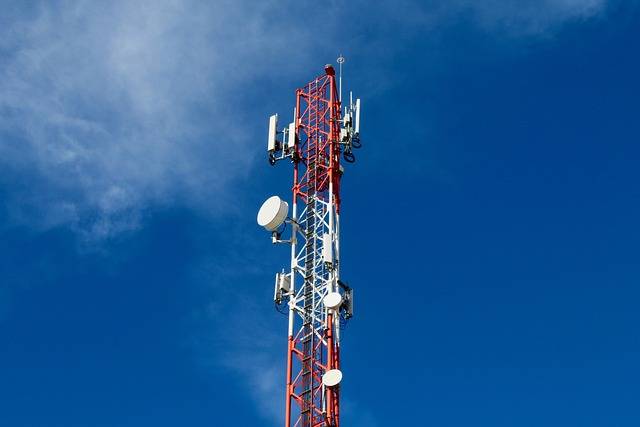Global telecom players for data connectivity
Share
| Table of Contents | |
|---|---|
| 1. The Top Global Telecom Players Shaping the Future of Connectivity | |
| 2. Understanding the Telecommunications Industry | |
| 3. The Top Global Telecom Players Shaping the Future of Connectivity | |
| 4. Key Trends in the Telecommunications Industry | |
| 5. | |
The Top Global Telecom Players Shaping the Future of Connectivity
The telecommunications industry is one that has experienced significant growth and transformation over the years. With the advent of new technologies and an ever-increasing demand for connectivity, it has become a vital part of the modern world. In this article, we will explore the top global telecom players shaping the future of connectivity. We will analyze their contributions to the industry and their impact on the world.

Introduction to Global Telecom Players
Global telecom players are companies that provide telecommunications services to customers around the world. These companies offer a range of services, including voice, data, and internet services. They operate in a highly competitive industry that is constantly evolving. Some of the most significant players in this industry include AT&T, Verizon Communications Inc., China Mobile Ltd., Vodafone Group Plc, German Telekom AG, Nippon Telegraph and Telephone Corporation (NTT), Telefónica S.A., Huawei Technologies Co. Ltd., and Ericsson AB.
Understanding the Telecommunications Industry
The telecommunications industry is a complex and dynamic industry that is constantly evolving. It is made up of companies that provide a wide range of services, including voice, data, and internet services. The industry has undergone significant changes over the years, with the advent of new technologies and the rise of new players in the market.
One of the most significant changes in the telecommunications industry has been the shift towards wireless technology. This shift has led to the widespread adoption of smartphones and other mobile devices, which has significantly increased the demand for data services. The industry has also seen an increase in the use of cloud computing and the Internet of Things (IoT), which has led to new business models and revenue streams for telecom companies.

The Top Global Telecom Players Shaping the Future of Connectivity
AT&T
AT&T is one of the largest telecommunications companies in the world, with a market capitalization of over $200 billion. The company provides a range of services, including wireless, broadband, and entertainment services. AT&T is also a leader in the development of 5G technology, which is expected to revolutionize the telecommunications industry.
One of the key initiatives of AT&T is its FirstNet public safety network. The network is designed to provide first responders with dedicated, high-speed connectivity during emergencies. This network is expected to play a significant role in improving public safety and emergency response times.
Verizon Communications Inc.
Verizon Communications Inc. is another major player in the telecommunications industry, with a market capitalization of over $240 billion. The company provides a range of services, including wireless, broadband, and entertainment services. Verizon is also a leader in the development of 5G technology and is expected to play a significant role in the deployment of this technology in the United States.
One of the key initiatives of Verizon is its 5G Home service, which provides customers with high-speed internet access using 5G technology. This service is currently available in select cities in the United States and is expected to expand in the coming years.

China Mobile Ltd.
China Mobile Ltd. is the largest telecommunications company in the world, with a market capitalization of over $140 billion. The company provides a range of services, including voice, data, and internet services. China Mobile is also a leader in the development of 5G technology and is expected to play a significant role in the deployment of this technology in China.
One of the key initiatives of China Mobile is its Narrowband Internet of Things (NB-IoT) network. This network is designed to provide low-cost connectivity for IoT devices, such as smart home devices and wearables. This network is expected to play a significant role in the growth of the IoT industry in China.
Vodafone Group Plc
Vodafone Group Plc is a British multinational telecommunications company, with a market capitalization of over $50 billion. The company provides a range of services, including voice, data, and internet services. Vodafone is also a leader in the development of 5G technology and is expected to play a significant role in the deployment of this technology in Europe.
One of the key initiatives of Vodafone is its partnership with IBM to develop a cloud-based platform for the deployment of 5G services. This platform is designed to enable enterprises to deploy 5G services quickly and easily, and is expected to play a significant role in the growth of the 5G industry in Europe.
German Telekom AG
German Telekom AG is a German multinational telecommunications company, with a market capitalization of over $80 billion. The company provides a range of services, including voice, data, and internet services. German Telekom is also a leader in the development of 5G technology and is expected to play a significant role in the deployment of this technology in Germany.
One of the key initiatives of German Telekom is its partnership with SK Telecom to develop a 5G roaming service. This service is designed to provide seamless connectivity for travelers between Germany and South Korea, and is expected to play a significant role in the growth of the 5G industry in Europe and Asia.

Nippon Telegraph and Telephone Corporation (NTT)
Nippon Telegraph and Telephone Corporation (NTT) is a Japanese telecommunications company, with a market capitalization of over $100 billion. The company provides a range of services, including voice, data, and internet services. NTT is also a leader in the development of 5G technology and is expected to play a significant role in the deployment of this technology in Japan.
One of the key initiatives of NTT is its partnership with Toyota to develop a connected car platform. This platform is designed to provide drivers with real-time information about traffic conditions, weather, and other important data. This platform is expected to play a significant role in the growth of the connected car industry in Japan.
Telefónica S.A.
Telefónica S.A. is a Spanish multinational telecommunications company, with a market capitalization of over $25 billion. The company provides a range of services, including voice, data, and internet services. Telefónica is also a leader in the development of 5G technology and is expected to play a significant role in the deployment of this technology in Europe and Latin America.
One of the key initiatives of Telefónica is its partnership with Huawei to develop a 5G network in Spain. This network is designed to provide customers with high-speed connectivity and is expected to play a significant role in the growth of the 5G industry in Europe.
Huawei Technologies Co. Ltd.
Huawei Technologies Co. Ltd. is a Chinese multinational telecommunications company, with a market capitalization of over $100 billion. The company provides a range of services, including voice, data, and internet services. Huawei is also a leader in the development of 5G technology and is expected to play a significant role in the deployment of this technology in China and other parts of the world.
One of the key initiatives of Huawei is its development of a 5G-enabled augmented reality (AR) platform. This platform is designed to provide users with a more immersive AR experience, and is expected to play a significant role in the growth of the AR industry in China and other parts of the world.

Ericsson AB
Ericsson AB is a Swedish multinational telecommunications company, with a market capitalization of over $30 billion. The company provides a range of services, including voice, data, and internet services. Ericsson is also a leader in the development of 5G technology and is expected to play a significant role in the deployment of this technology in Europe and other parts of the world.
One of the key initiatives of Ericsson is its partnership with Intel to develop a 5G radio access network (RAN) platform. This platform is designed to enable service providers to deploy 5G services quickly and easily, and is expected to play a significant role in the growth of the 5G industry in Europe and other parts of the world.
Key Trends in the Telecommunications Industry
The telecommunications industry is one that is constantly evolving, with new technologies and trends emerging all the time. Some of the key trends that are currently shaping the industry include the following:
5G Technology
5G technology is one of the most significant trends in the telecommunications industry. This technology is expected to revolutionize the way we connect to the internet, with faster speeds and lower latency. It is also expected to enable new applications and services, such as autonomous vehicles and remote surgery.
Internet of Things (IoT)
The Internet of Things (IoT) is another significant trend in the telecommunications industry. This trend involves the connection of everyday devices to the internet, enabling them to share data and communicate with each other. This trend is expected to drive significant growth in the industry, with new applications and services emerging all the time.

Cloud Computing
Cloud computing is also a significant trend in the telecommunications industry. This trend involves the provision of computing resources over the internet, enabling users to access these resources from anywhere in the world. This trend is expected to enable new business models and revenue streams for telecom companies, as well as new applications and services for customers.
The telecommunications industry is one that is constantly evolving, with new technologies and trends emerging all the time. The top global telecom players are at the forefront of this evolution, shaping the future of connectivity and driving innovation in the industry. As we move forward, it will be exciting to see what new developments and trends emerge, and how these players will continue to shape the industry.
Travel eSIMs are the latest innovation in the telecommunications industry. To pick up a travel eSIM for your next holiday; visit rocketesims.com now…
Frequently Asked Questions
-300x600-px.gif)
Related Blogs
 Global telecom players for data connectivity
Global telecom players for data connectivity The Pros and Cons of Buying an International Roaming Plan for Data
The Pros and Cons of Buying an International Roaming Plan for Data Travel Smart with these Top Cellular Companies' International Roaming Plans for Global Data
Travel Smart with these Top Cellular Companies' International Roaming Plans for Global Data Data Roaming on Your Overseas Holiday: To Keep On or Turn Off?
Data Roaming on Your Overseas Holiday: To Keep On or Turn Off? Avoid These Costly Mistakes: My Experience with Ridiculously High International Roaming Charges
Avoid These Costly Mistakes: My Experience with Ridiculously High International Roaming Charges Understanding Data Roaming : A Guide to Staying Connected on Your International Trips
Understanding Data Roaming : A Guide to Staying Connected on Your International Trips
-300x600-px.gif)
